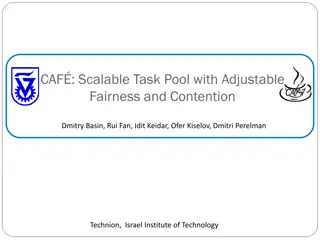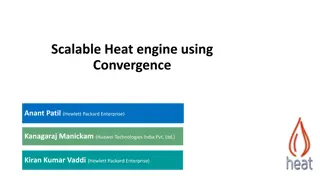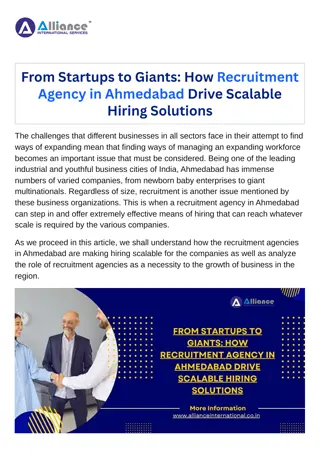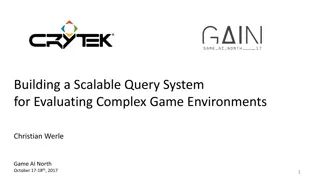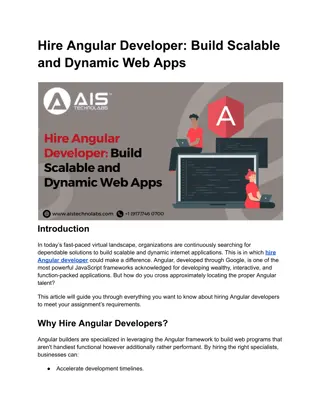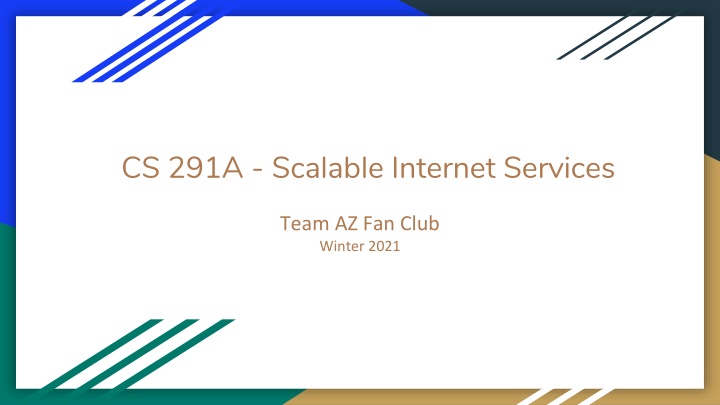
Optimizing Scalable Internet Services with Schedule.me and Load Testing
"Discover how the CS.291A Scalable Internet Services Team leverages Schedule.me to schedule meetings efficiently, conducts load testing, sets up seeding for optimal performance, implements caching strategies, and optimizes queries for streamlined operations."
Download Presentation

Please find below an Image/Link to download the presentation.
The content on the website is provided AS IS for your information and personal use only. It may not be sold, licensed, or shared on other websites without obtaining consent from the author. If you encounter any issues during the download, it is possible that the publisher has removed the file from their server.
You are allowed to download the files provided on this website for personal or commercial use, subject to the condition that they are used lawfully. All files are the property of their respective owners.
The content on the website is provided AS IS for your information and personal use only. It may not be sold, licensed, or shared on other websites without obtaining consent from the author.
E N D
Presentation Transcript
CS 291A - Scalable Internet Services Team AZ Fan Club Winter 2021
What is schedule.me? schedule.me enables groups to find the most optimal times to meet based on each member s availability. Main features: View all polls Create a new poll Poll details Add participant to a poll Optimal time frame selection
Setup Seeding : Sessions : 1,000 polls 10,000 users 10,000 comments 20,000 timeframes 1. 2. 3. Create poll (weight 1) Populate poll with users (weight 1) Create new user within a poll + enter their availability (weight 1) Existing user enters their availability (weight 1) User enters 1-10 comments (weight 1) User views a poll (weight 10) 4. Transactions : 5. 6. create_poll, create_user, create_timeframe, create_comment, view_poll, view_user
Baseline Single ec2 m5.large instance 7 arrival phases, each phase 60 sec. Begins with 2 users per second, doubles each subsequent phase
Caching In-memory in application server (1024 MB) Russian Doll caching Poll views + associated users & comments Optimal time frame calculations Significant performance improvements
Pagination Paginating users and comments on on a given poll s page Displays 5 users/polls per sub- page Little to no improvements
N+1 Query Optimizations Scenario 1: Accessing a user s time frames for (1) computing optimal timeframes and (2) rendering the polls page Original query: SELECT "polls".* FROM "polls" WHERE "polls"."id" = $1 LIMIT $2 SELECT "users".* FROM "users" WHERE "users"."poll_id" = $1 for user_id: SELECT "time_frames".* FROM "time_frames" WHERE "time_frames"."user_id" = $1 Optimized query: SELECT "polls".* FROM "polls" WHRE "polls"."id" = $1 LIMIT $2 SELECT "users".* FROM "users" WHERE "users"."poll_id" = $1 SELECT "time_frames".* FROM "time_frames" WHERE "time_frames"."user_id" in ($1, $2, ...)
N+1 Query Optimizations (cont.) Scenario 2: Accessing the associated users for a given poll s comments when rendering the poll s page Original query: SELECT "comments".* FROM "comments" INNER JOIN "users" ON "comments"."user_id" = "users"."id" WHERE "users"."poll_id" = $1 for user_id: SELECT "users".* FROM "users" WHERE "users"."id" = $1 LIMIT $2 Optimized query: SELECT "comments".* FROM "comments" INNER JOIN "users" ON "comments"."user_id" = "users"."id" WHERE "users"."poll_id" = $1 SELECT "users".* FROM "users" WHERE "users"."id" in ($1, $2, ...)
N+1 Query Optimizations (cont.) Results:
Horizontal Scaling Increasing # of m5 instances to 2, 4, and 8.
Vertical Scaling Increasing the size of each m5 instance. m5.large (initial) m5.xlarge m5.2xlarge m5.4xlarge m5.8xlarge
Cost Analysis Horizontal Scaling Vertical Scaling Type Time until failure (sec) Phase / Arrival rate Cost Type Time until failure (sec) Phase / Arrival rate Cost m5.large (baseline) 240 5/32 $0.096 m5.xlarge 300 6/64 $0.192 m5.2xlarge 360 7/128 $0.384 2x m5.large 300 6/64 $0.192 m5.4xlarge 360ish? 7/128 $0.768 4x m5.large 360 7/128 $0.384 m5.8xlarge N/A 7/128++ $1.536 8x m5.large 360ish? 7/128+ $0.768
Pushing Further Combining vertical scaling and code optimizations
Pushing Further Combining horizontal scaling, vertical scaling, and code optimizations
Cost Analysis Horizontal + Vertical Scaling App Type DB Type Time until failure (sec) Phase / Arrival rate Cost m5.large (baseline) m5.large 240 5/32 $0.096 + $0.178 = $0.274 8x m5.large m5.large 420 8/256 $0.768 + $0.178 = $0.946 8x m5.xlarge m5.2xlarge 480 9/512 $1.536 + $0.712 = $2.248 8x m5.2xlarge m5.4xlarge 540ish 9/512+ $3.072 + $1.424 = $4.496
Conclusion built a web service load testing is very hard we learned a great deal - rupi kaur
Conclusion (Not Clickbait) Built with Rails, deployed with AWS, load tested with Tsung Optimizations: N+1 query optimization Caching Pagination Future Goals: Better UI, Nosql Database

